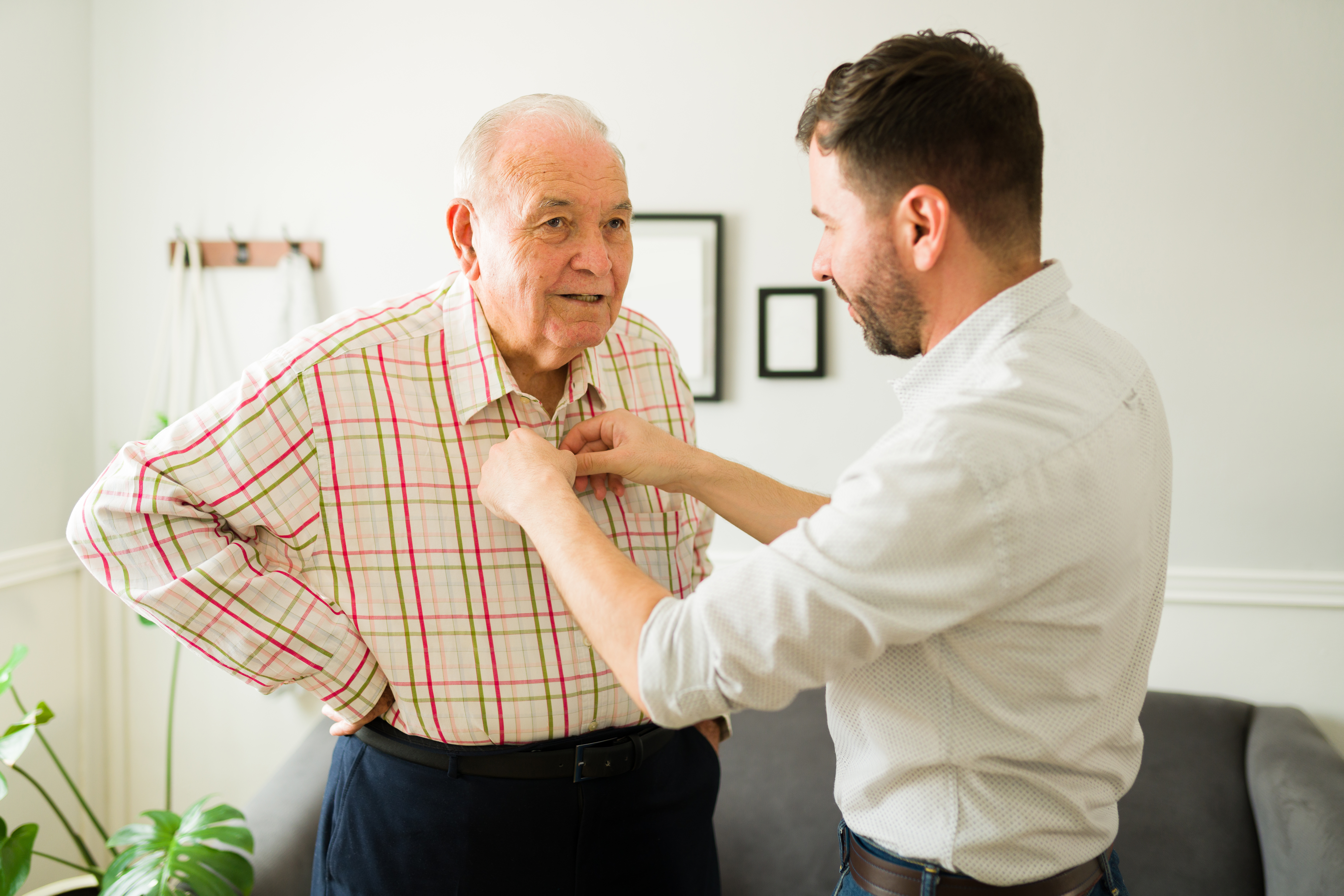Coping with the stigma of dementia

Dementia is still stigmatized in our society, often leading care recipients and their caregivers to feel isolated and abandoned. Learning not to take hurtful comments personally and spending time with other dementia caregivers are among the ways to cope with stigma and maintain dignity for you and your loved one.
As a dementia caregiver, remember that you have a right to feel proud. Even on the hardest days when nothing seems to be going right, know that you are doing something pretty remarkable in caring for someone with dementia. It’s a job almost none of us was trained to do. Yet there you are, trying to help your loved one live their best life. You are an unsung hero.
Remember this, and try to surround yourself with people who will remind you as well. For even now, for all we know about mental health in general and dementia in particular, dementia is still stigmatized in our society.
Some friends or family may avoid you and your loved one, leading to feelings of isolation and abandonment.
They may see your loved one as having little or no quality of life, when you are working so hard to see that they do.
They may act as if the diagnosis never happened and refuse to talk about it, making you feel like a buzzkill if you bring it up.
Not everyone will act this way, but when they do, these counter-stigma strategies may help:
Try not to take it personally
Dementia experts attribute its stigmatization to fear and lack of awareness and understanding about the condition.1 Those hurtful remarks or behaviors are not a reflection on you or your loved one. Most people mean no harm and are speaking from a place of unawareness and misunderstanding.
Model person-centered language
Words can be powerful. How you speak about dementia with others can help them see dementia more positively. Examples: Use person with dementia rather than “senile,” “suffering,” or “victim.” Refer to dementia as a condition rather than a “disease.” Instead of “wandered,” try got lost or lost their way. In general, use language that honors the person’s dignity—and yours.
Don’t go it alone
Join a local support group for dementia caregivers where you can learn from others’ experience and blow off steam. You might also consider joining a group in your area that educates the public about dementia to increase awareness and understanding. They exist. Contact your local Area Agency on Aging to find groups near you.
Dispel some of the myths
Sharing some facts about dementia can help familiarize others and help them feel more comfortable talking about your loved one and what’s going on. Here are some examples.
The following would make a great side-by-side graphic, that we could leverage both on this page for scanning readers, and on other Dementia resources.
Myth: Dementia is part of aging and is inevitable.
Fact: Dementia is not a normal part of aging. It is far more serious than the occasional forgetfulness many people experience later in life.
Myth: Dementia is preventable, so some people bring it on themselves.
Fact: Although certain factors like smoking can increase the risk of dementia, there is no known effective way to prevent it.
Myth: People with dementia have little or no quality of life.
Fact: People living with dementia can live actively and meaningfully for many years.
You know best
Last, remember whose opinion really counts. Nobody knows better than you what you’re going through. How you feel and especially how your loved one feels about their care is what matters most.
Access our full guide to dementia care
Find more tips, information, and resources with our full-length guide to dementia care.





